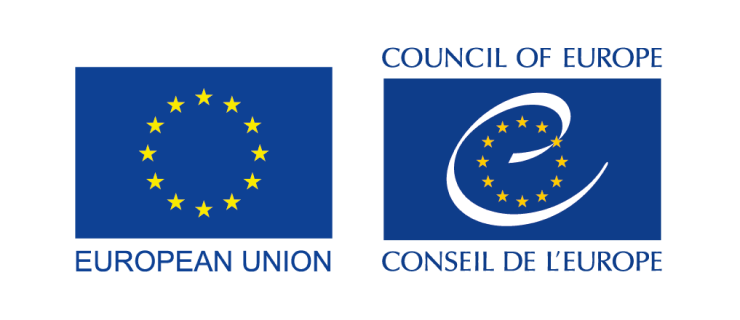HISTOLAB Award for Innovative School Projects in History Education 2024
Strasbourg, France | 5 April 2024The HISTOLAB Award for Innovative School Projects in History Education goes to eight schools from France, Ireland, Serbia, Spain and Türkiye and one transnational project.
The Award was presented to students and teachers from the winning schools during the HISTOLAB European Innovation Days in History Education 2024 taking place at the headquarters of the Council of Europe in Strasbourg.
The HISTOLAB Award for Innovative School Projects in History Education encourages students to share their interests and ideas, and to express their vision of how they want to learn about history.
Some 441 applications were submitted through a Call for projects that ran during winter 2023 / 2024. Students were asked to ruminate on their experiences with learning history, and to submit their ideas on how history teaching could be more effective in meeting their interests, while strengthening their understanding of democratic culture and the respect for human rights, as promoted by the Council of Europe.
This award is not only a reward for schools, for their efforts and for the excellent leadership of history teachers. It is a signal we want to send to young people that they can bring their ideas and that they can guide us into how history should be taught in an ever-changing world. Learners should always be first, and this award is precisely a recognition of that. Congratulations to all students, teachers and schools involved” mentioned Aurora Ailincai, Head of the History Education Division and Executive Director of the Observatory on History Teaching in Europe during the award ceremony.
We thank all the women who fought tooth and nail to have what we call our basic rights today, such as working or voting. The inspiration for our movie came from that one simple thing women rebelled for a century ago: voting” stated students from Muratpaşa Türk Telekom Anadolu Lisesi, Türkiye, who were among the recipients of the Award.
Award winners by country:
France:
Lycée Charles Péguy, Eysines, for “Un camp d’Internement à Bordeaux, le camp de Mérignac-Beaudésert” where students took on the role of historians to research and locate the present-day site of a former Vichy internment camp, including the creation of a 3D model of the camp and a website with information on the camp and internees.
Ireland:
Corpus Christi Primary School, Moyross, Limerick, for “Flight of the Wild Geese” a film about the history of Limerick in the 1690s.
Serbia:
XIV Beogradska Gimnazija from Belgrade for “Belgrade Adventure”, a website built by students using their research on historical locations in Belgrade.
Spain:
IES Las Norias from Monforte del Cid for “Suitcase of Exile” where history met an art project through which students learn about the history of migration and refugees by creating “suitcases” belonging to historical figures who had experiences of exile, emigration.
Türkiye:
- Private Sanko Secondary School Gaziantep for “Zaman Kapsulu Hikayeleri” a podcast episode about how an event in one country (the French Revolution) can affect other places in the world (Ottoman Empire).
- Belediye Fen Lisesi from Fethiye, Muğla for “AReon application for Historical sites” for a prototype of an app which uses augmented reality (AR) to support immersive learning at historical sites and museums. The application includes interactive elements like timelines and gamification elements, like puzzles.
- Muratpaşa Türk Telekom Anadolu Lisesi for “Bizim Seçimimiz”, a theatre piece on women’s voting rights around the world which advocates for gender equality, looks at the perspectives of various countries (Türkiye, France, Italy, Mexico), and shows connections between different parts of the world.
- TOKI Güneşparkevleri Kaihl Küçükçekmece from Istanbul for “Reclaiming marginalised narratives” an essay about the need for including marginalised and underrepresented perspectives in history curricula, including suggestions of active learning methods to improve inclusivity.
Transnational project:
“Footprints for Freedom” - Collaboration between schools in Germany, Greece, France, Poland and Ukraine where students create informational content for an app, based on their own research on local historical sites related to Holocaust history.

